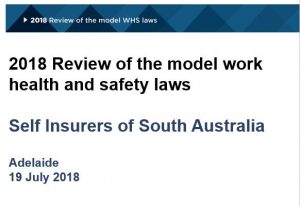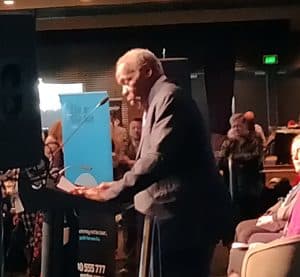 In late July 2018, the Victorian Auditor-General Office (VAGO) released a report into the insurance risks of several Victorian local councils. It is reasonable to expect the costs of workers’ compensation insurance to be addressed in the report but this was not the case. Although it is clearly an insurance product, the Auditor-General excluded workers’ compensation insurance. This position continues to sideline workers’ compensation implying to Victorian Councils, if not businesses, that it is less important than other business insurances.
In late July 2018, the Victorian Auditor-General Office (VAGO) released a report into the insurance risks of several Victorian local councils. It is reasonable to expect the costs of workers’ compensation insurance to be addressed in the report but this was not the case. Although it is clearly an insurance product, the Auditor-General excluded workers’ compensation insurance. This position continues to sideline workers’ compensation implying to Victorian Councils, if not businesses, that it is less important than other business insurances.
The best example of this implication is found on page 48 of the report in a graph

 Australia currently has a lot of official inquiries into workplace issues that affect the occupational health and safety (OHS) of workers. It is almost impossible to keep up with them and, as a result, some important voices are being missed, but even if they spoke, there is a strong chance they will not be listened to. The Victorian Government has released the final report of the Inquiry into Penalty Rates and Fair Pay. There are two overt mentions of OHS that don’t seem to go anywhere.
Australia currently has a lot of official inquiries into workplace issues that affect the occupational health and safety (OHS) of workers. It is almost impossible to keep up with them and, as a result, some important voices are being missed, but even if they spoke, there is a strong chance they will not be listened to. The Victorian Government has released the final report of the Inquiry into Penalty Rates and Fair Pay. There are two overt mentions of OHS that don’t seem to go anywhere. Last time we looked at the Australian Senate Inquiry into “
Last time we looked at the Australian Senate Inquiry into “

 Below is the list of occupational health and safety (OHS) issues for the next three years, put to the Australian Council of Trade Unions and passed, at its
Below is the list of occupational health and safety (OHS) issues for the next three years, put to the Australian Council of Trade Unions and passed, at its 